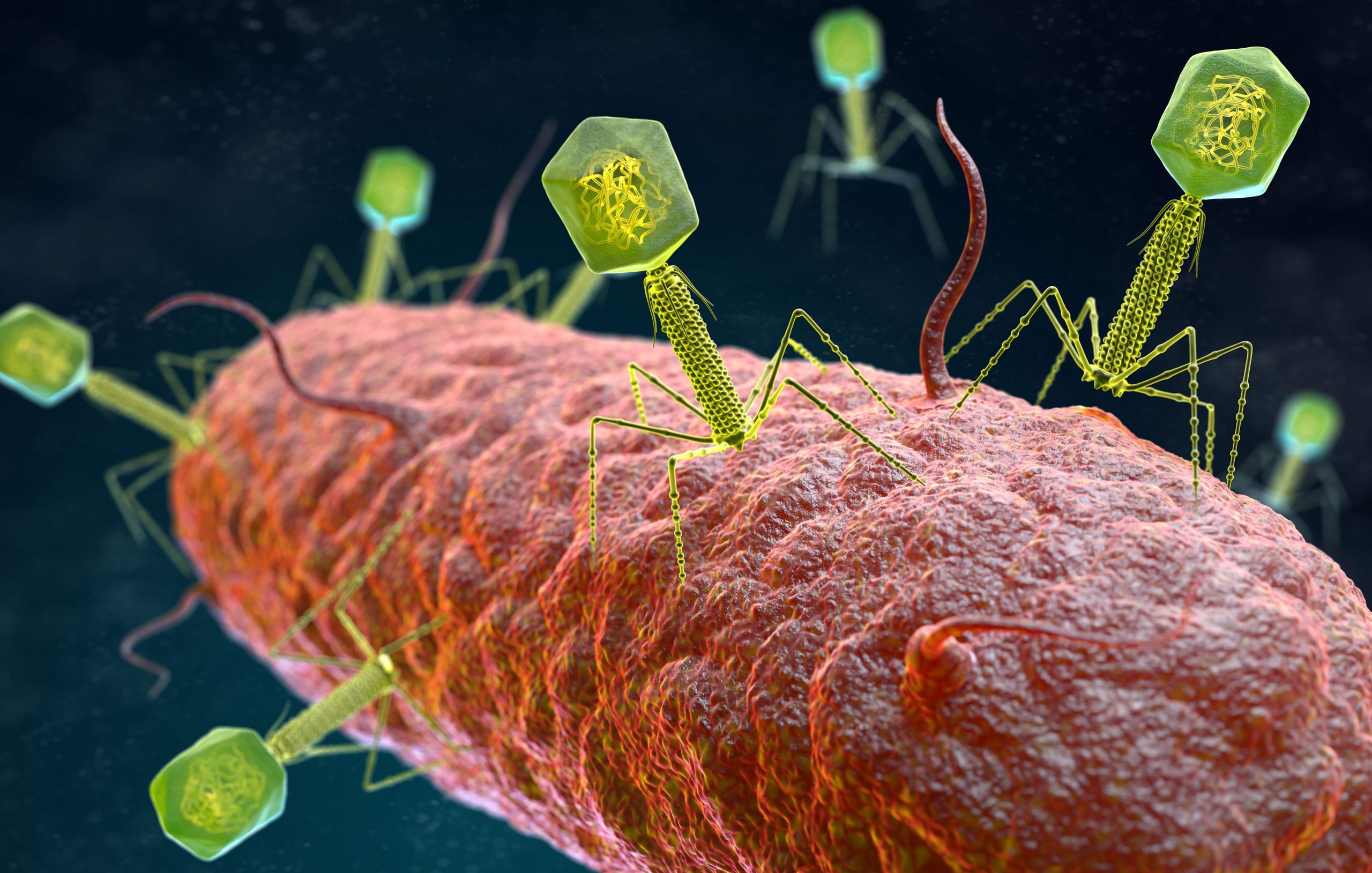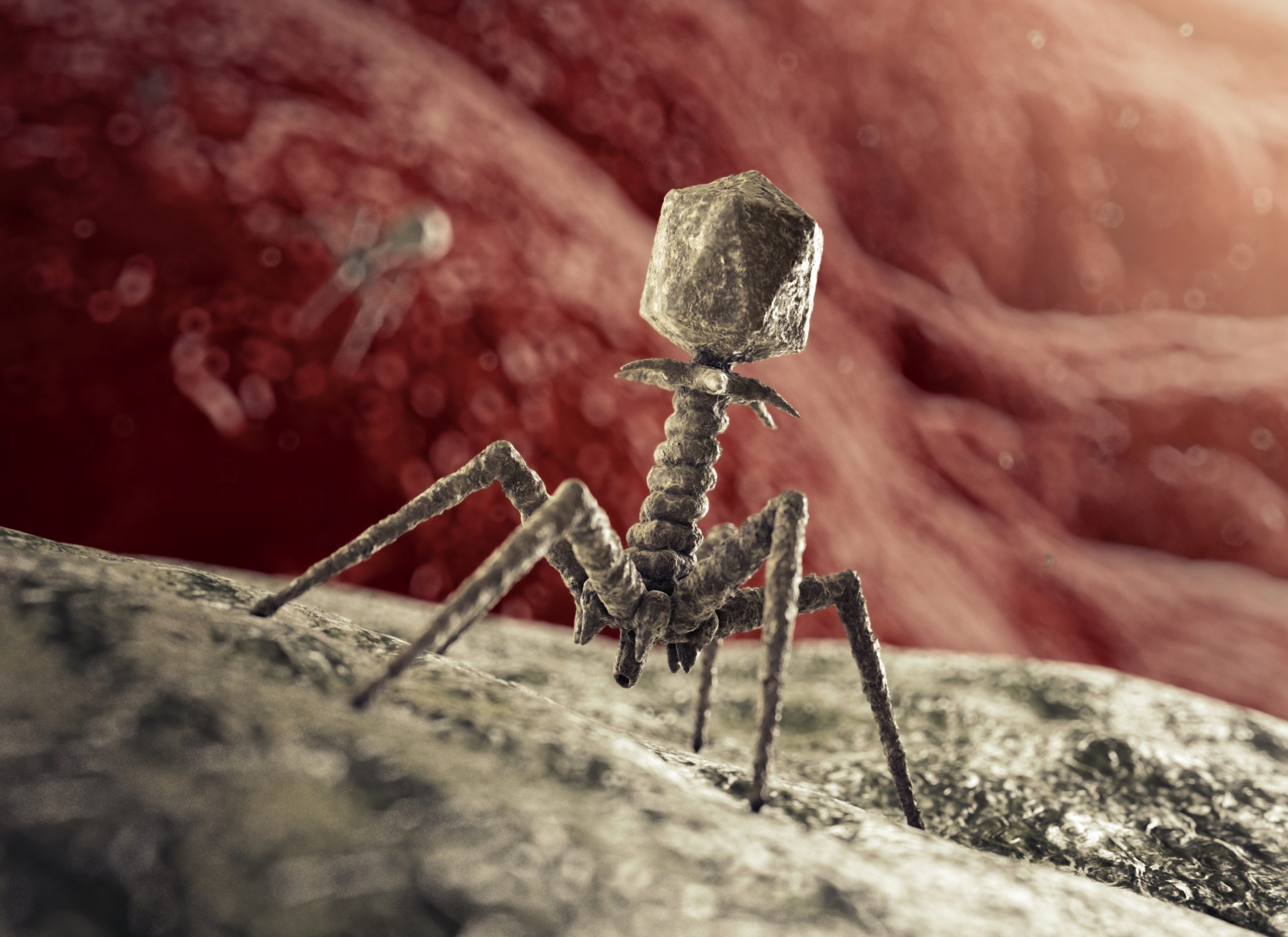
Bacteriophages are viruses known to attack bacteria. Their effectiveness in eradicating the most antibiotic-resistant bacteria piqued scientists’ interest in the prospect of using them to combat pathogenic viruses. Some research has confirmed the existence of antiviral properties in bacteriophages, which, when used, can aid in the fight against other viruses. Despite the efforts of scientists, knowledge of the antiviral properties of bacteriophages remains limited (Do not confuse bacteriophages and virophages). Virophages are viral particles that are known to infect viruses, whereas bacteriophages (as I may refer to them in this article as phages) are entities that are known to infect bacteria.

Do phages attack other viruses?
Bacteriophages do not attack other viruses; instead, they target bacteria. They attach to bacterial surfaces and inject their genetic materials, which will later produce phage particles, to use bacteria as a factory for their multiplication. I wrote an article on the possibility of bacteriophage infecting human cells, which might enlighten you more on phage specificity. Viruses, as previously stated, have their own phages known as Virophages. Only a few of them have been reported in the scientific community, making them the least common type of phage.
How does a phage become an antiviral agent?
Instead of directly attacking other viruses, bacteriophages indirectly induce other mechanisms in the host body that may prevent different viruses from multiplying. Because most viruses rely on the host to multiply, if those systems are disrupted, the virus’s accumulation will suffer as well. Some studies have suggested that the bacteriophage has a direct, induced effect on the virus without involving the host, implying that the impact of a bacteriophage on a virus can be felt both in vivo and in vitro. Phages will rely on the presence of a specific receptor on the surface of the virus in most of the latter methods.
Phage as a Potential Antiviral Agent
The following discussion on the potentiality of phages having antiviral properties was extracted from information provided by different peer-reviewed published research as the information references will be declared.
Downregulating NF-kappaB Activation
Viruses have evolved strategies to exploit NF kappa B signalling, which regulates gene expression involved in immune responses. This way helps viruses avoid mechanisms that can clear them from the host body. In fact, the activation of NF kappa B signalling is a prerequisite for some viral infections. In contrast, phage does not cause significant activation of NF-kappa B in human endothelial and epithelial cells. Many researchers reported the ability of phages to prohibit the activation. Moreover, preincubation of these cells with phage abolishes (endothelium) or significantly reduces (epithelium) NF kappa B activation.
Lysogenic Conversion and Immune Response
Many people think of lytic phages as the only ones to be considered when it comes to phage application, although that might not be true for some reason. Unlike lytic phages, Lysogenic phages are responsible for inducing phagicin production; Phagicin is an antiviral protein in nature. Adding to that, recent data from the Fischetti group have provided evidence that lysogeny plays a significant role in the human adaptive immune response to bacterial infection. This revealed information is opening the door for more researches to be done on lysogenic phages. A study done by Sela et al. (2018) suggests that prophages are responsible for a strong T and B cell immune response. In contrast, lysogenic conversion has been shown to decrease phagocytosis of bacteria by phagocytes bringing the negative bits of using lysogenic phages.
Phage Inhibit Adsorption and Replication of Human Adenovirus and Modify the Expression of Genes Involved in Antimicrobial Immunity

When it comes to phages, scientists have done a lot so far in their race to understand the full potential of these particles. The effect of phage on stages of infection by a pathogenic virus has been studied, and the results have been outstanding. They discovered a significant dose-dependent inhibition of Human adenovirus (HAdV) adsorption to cell lines in vitro by T4 phage, while LPS had no effect. Furthermore, Midzybrodzki et al. (2013) discovered that T4 phage shielded cells from a HAdV-induced cytopathic effect. These findings suggest that T4 phage could be used as a novel antiviral agent, though more research is needed to confirm this. The phage’s ability to inhibit HAdV infection during the viral replication stage suggests that the phage could also interfere with viruses that use cellular receptors other than those used by HAdV. When scientists incubated phage with adenovirus for an extended period of time, they observed a decrease in Adenoviral DNA synthesis. They do, however, suggest that a high titer is required for early inhibition of HAdV gene expression, whereas low titers cause late inhibition.
Bacteriophages are viruses that cause bacterial cells to be infected and killed. Several studies have confirmed that, in addition to antibacterial properties, bacteriophages have antiviral properties. The information in this article was compiled from various research publications. Don’t forget to subscribe to this blog to stay up to date on our future posts.
References
- R. Międzybrodzki, W. Fortuna, B. Weber-Dąbrowska, et al., “The in vitro studies on bacteriophage influence the ability of human viruses to infect epithelial cells,” in Proceedings of the 20th Biennial Evergreen International Phage Meeting, Olympia, WA, USA, August 2013.
- S. Trend, B. J. Chang, M. O’Dea, S. M. Stick, and A. Kicic, “Use of a primary epithelial cell screening tool to investigate phage therapy in cystic fibrosis,” Frontiers in Pharmacology, vol. 9, p. 1330, 2018.
- Possible Role for Bacteriophages in the Treatment of SARS-CoV-2 Infection, Mishra, et al., https://doi.org/10.1155/2020/8844963
- Phage as an Antimicrobial Agent: D’herelle’s Heretical Theories and Their Role in the Decline of Phage Prophylaxis in the West Dottore Emiliano Fruciano and Shawna Bourne, https://doi.org/10.1155/2007/976850



Leave a Reply
You must be logged in to post a comment.